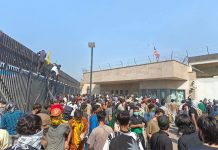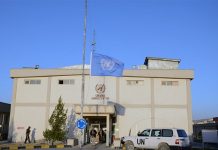Prominent Baloch leader and head of armed group Baloch Liberation Army (BLA), Bashir Zeb Baluch, has said that “the signing of Tibetan policy into law by US is a ray of hope for oppressed nations across the world.”
In a statement on Twitter on Thursday, Mr Baluch said that “the people of Balochistan are also suffering from Chinese nefariousness through its OBOR projects with occupying Pakistani state.”
He added: “The US and western countries should support the just war of Baloch nation, which is the only power in region that is standing in front of Chinese military expansionism.”
In Balochistan China has huge presence as it has invested heavily in Saindak copper-gold project. It is also currently constructing CPEC, a multi-billion dollar project, as part of ‘One Belt One Road’ initiative.
BLA, currently headed by Bashir Zeb Baluch, strongly opposes Chinese presence in Balochistan and has demanded “immediate withdrawal or face deadly attacks”. The group has carried out several attacks against Chinese interests in the region in last two years, including carrying out a suicide attack on Chinese consulate in Karachi.
Earlier on Monday, US President Trump signed into law the Tibetan Policy and Support Act (TPSA), which pledges increased support to the people of Tibet. The bill was passed by the US Congress a week ago.
The new law supports Tibetan government in exile and recognises Central Tibetan Administration (CTA) as the legitimate representative of the Tibetan people and the Dr Lobsang Sange as the President of the CTA.
The CTA is considered “Tibet’s elected parliamentary government” based in Dharamshala, India. It is also referred to as the Tibetan Government in Exile.
Among many other humanitarian pledges, the Act also includes sanctioning Chinese officials if they try to appoint the next spiritual leader of the Tibetan people.
The legislation also provides funding for Tibetan humanitarian and development assistance projects both inside and outside Tibet until at least 2025.
The TPSA includes a requirement that China allows the opening of a U.S. consulate in Tibet’s regional capital Lhasa before any new Chinese consulate can open in the United States.
Tibetan rights groups have welcomed the development. The Washington-based International Campaign for Tibet said the new Act would “dramatically upgrade U.S. support for Tibetans in key areas and will prove a direct challenge to China’s continuing repression of the Tibetan people.”






























